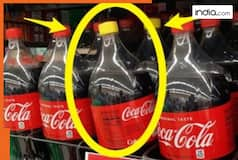
By clicking “Accept All Cookies”, you agree to the storing of cookies on your device to enhance site navigation, analyze site usage, and assist in our marketing efforts Cookies Policy.

Gum arabic, an essential ingredient in products like Coca-Cola, M&M’s, and L’Oreal lipsticks, is being increasingly smuggled out of war-torn Sudan. The ongoing conflict has complicated global supply chains, making it harder for Western companies to ensure their ingredients are conflict-free.
Sudan accounts for around 80% of the world’s gum arabic supply. The natural resin, derived from acacia trees, is used as a stabilizer, thickener in various products, including food, cosmetics, and pharmaceuticals. Despite acacia trees being found across Africa’s Sahel region, Sudan has become the largest exporter due to its expansive groves.
However, since the civil war erupted in April 2023, the paramilitary Rapid Support Forces (RSF) have taken control of major gum-harvesting regions in Kordofan and Darfur. Producers and traders say the RSF charges fees for gum marketing and arranges its movement through informal routes, bypassing official certification processes.
According to a report by Reuters, with RSF dominance, gum arabic is now smuggled into neighboring countries like Chad, Senegal, South Sudan, and Egypt. Some of these nations, previously minor producers or exporters of gum arabic, have suddenly become major players in the trade, offering the product at discounted rates without proof of conflict-free sourcing.
Before the conflict, raw gum was transported from Khartoum to Port Sudan for export. Now, traders collect the gum from landowners and sell it in informal border markets in exchange for U.S. dollars. RSF protection is paid for by the traders, which shows the paramilitary group’s influence over the trade.
Western companies reliant on gum arabic are facing challenges in maintaining ethical sourcing. Buyers report being approached by traders offering low-priced gum often $1,950 per metric ton, far below the typical $3,000 without Sedex certification, a standard ensuring ethical supply chains.
Major industry players like Nexira have reduced imports from Sudan and diversified sourcing to other countries. However, companies like Nestle, Coca-Cola, Mars, and L’Oreal have didn’t comment on the situation.
The Association for International Promotion of Gums (AIPG), an industry body, stated in January that it found no evidence linking gum arabic supply chains to Sudan.
(With Inputs From Reuters)
For breaking news and live news updates, like us on Facebook or follow us on Twitter and Instagram. Read more on Latest Business News on India.com.